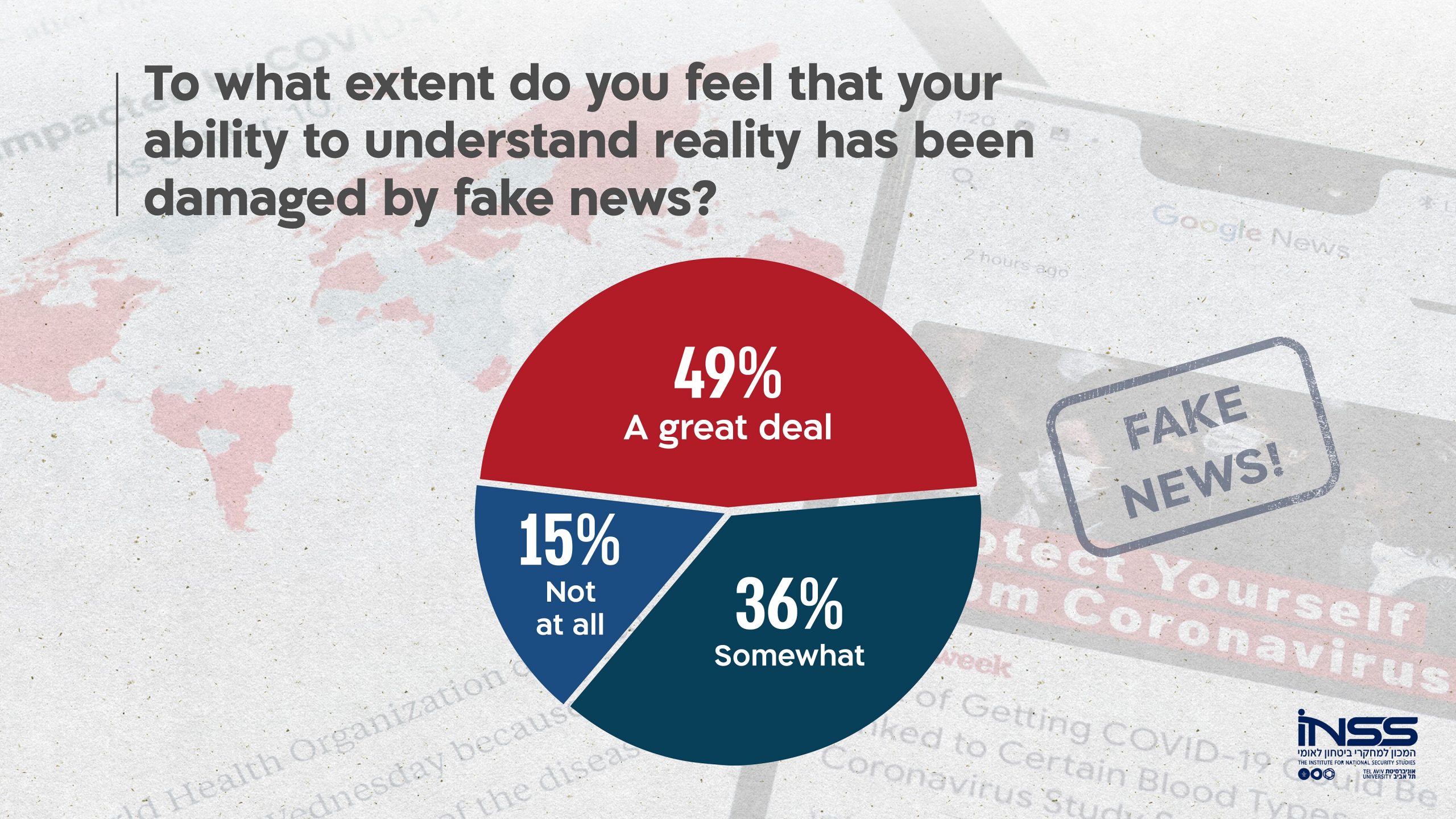2021: A Turning Point for Fake News?
Inbal Orpaz
2021: A Turning Point for Fake News?
Inbal Orpaz
In early 2019, the heads of the US intelligence agencies declared technologies used for online influence operations and election interference to be global threats that will “almost certainly” be used “to weaken democratic institutions, undermine US alliances and partnerships, and shape policy outcomes in the United States and elsewhere.”In retrospect it seems that their concerns proved false, and the use of various kinds of sophisticated fake news in the 2020 presidential elections, including deepfake, was limited and did not cause widespread deception of voters. However, the case of the US elections and additional events of the past year raise questions about the role fake news will continue to play in national security in the post-Trump era, and about the phenomenon’s impact on Israel.
President Donald Trump was one of the shapers of a period characterized as a post-truth and fake news era, whose impact spreads beyond the borders of the United States. Under his leadership, Trump undermined the standing of professional experts and suggested sending the heads of the intelligence agencies “back to school,” and his spokespeople coined the term “alternative facts.” However, several important changes over the past year indicate reversals in this realm. First, Facebook and Twitter – technology giants with products used as platforms for the widespread dissemination of lies – were pressured to present a policy for handling the issue, after a long period in which they tried to evade responsibility and avoid intervention in content, and even claimed that they are neutral channels for the distribution of information. Following public criticism and hearings in Senate committees, for the first time these companies took steps in 2020 to limit the distribution of fake news by politicians.

Close to Election Day in the United States, Twitter blocked tweets by Trump, and Facebook added a clarification to his posts, stating that according to the current vote counts he is not leading the race. American television networks also took a precedent-setting step and cut off a live speech by Trump in which he announced that the elections were “stolen.” These incidents were not the first in which Trump lied or claimed conspiracies, but until then the technology companies and media organizations had not taken steps to combat the phenomenon. Following the January 6, 2021 assault on Capitol Hill, both companies blocked the President’s accounts. In Israel, media outlets took similar steps for the first time: on Channel 13 news Prime Minister Benjamin Netanyahu’s speech was fact-checked while it was broadcast live in December, and a similar step was taken by the daily newspaper Yediot Ahronot.
Thus, it is also possible that in 2021 there will be a turning point in relation to fake news. Perhaps the media will return to its traditional role as a watchdog of democracy and will be more active in exposing lies, although it is already a target of criticism regarding the ability to determine the truth. The technology platforms will need to find a way to become balancing players that do not serve as a platform for the mass dissemination of lies, while avoiding the role of censors who decide what truth is and intervene in domestic and international discourse. Furthermore, it is not yet clear if the new active policy of the social networks will remain an American issue, or whether it will also expand to Israel and other countries.
Governments will have to cope with the dissemination of lies in the sphere of public health, in particular because the global vaccination campaign against COVID-19 could serve as fertile ground for the distribution of falsehoods regarding vaccines and their side effects, in order to prevent the public from getting vaccinated. In Israel, against the backdrop of the ongoing popular and political protests against Benjamin Netanyahu, and in advance of the forthcoming Knesset elections in March 2021, false statements by politicians and other sources of disinformation will have to be addressed. Moreover, as the extent of fake social media accounts that seek to influence the internal discourse in Israel is still unknown, it will be necessary to clarify the scope of the phenomenon, which inter alia threatens social cohesion, government stability, values, and ways of life in Israel. Handling the dissemination of fake news in Israel will require adaptation and change on the level of legislation and enforcement, which currently do not sufficiently address technological developments and the possibilities they offer. The end of the Trump era will not end the era of fake news, but in the near future it will become clear whether it can serve as a turning point in the struggle to curb the spread of the phenomenon, which has substantial implications for national security.


